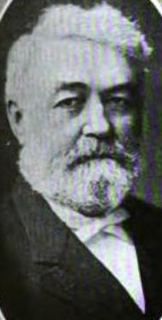A Quote by Marcus Mumford
I approach my life haphazardly. Not much holiness and only as much wisdom as I can muster.
Related Quotes
This is the state of all creatures, whether men or angels; as they make not themselves, so they enjoy nothing from themselves; if they are great, it must be only as great receivers of the gifts of God; their power can only be so much of the divine power acting in them; their wisdom can be only so much of the divine wisdom shining within them; and their light and glory, only so much of the light and glory of God shining upon them.
I have no idea what happens, but I do respond to other cultures that treat life with a much more positive approach. It teaches - especially when you're a child - it teaches you to be afraid of everything, you feel like something bad is always going to happen. As to where that other way seems a much more spiritual and positive approach.
The difference between God and the devil is in nothing except in unselfishness and selfishness. The devil knows as much as God, is as powerful as God; only he has no holiness that makes him a devil. Apply the same idea to the modern world: excess of knowledge and power, without holiness, makes human beings devils.
Great winds and storms help fruit-bearing trees. So also do corruptions and temptations help the fruitfulness of grace and holiness. The storm loosens the earth round its roots so the tree is able to get its roots deeper into the earth, where it receives fresh supplies of nourishment. But only much later will it be seen to bring forth better fruit. So corruptions and temptations develop the roots of humility, self-abasement and mourning in a deeper search for that grace by which holiness grows strong. But only later will there be visible fruits of increased holiness.
We cannot grasp the true meaning of the divine holiness by thinking of someone or something very pure and then raising the concept to the highest degree we are capable of. God's holiness is not simply the best we know infinitely bettered. We know nothing like the divine holiness. It stands apart, unique, unapproachable, incomprehensible and unattainable. The natural man is blind to it. He may fear God's power and admire His wisdom, but His holiness he cannot even imagine.
One should hallow all that one does in one's natural life. One eats in holiness, tastes the taste of food in holiness, and the table becomes an altar. One works in holiness, and raises up the sparks which hide themselves in all tools. One walks in holiness across the fields, and the soft songs of all herbs, which they voice to God, enter into the song of our soul.



































